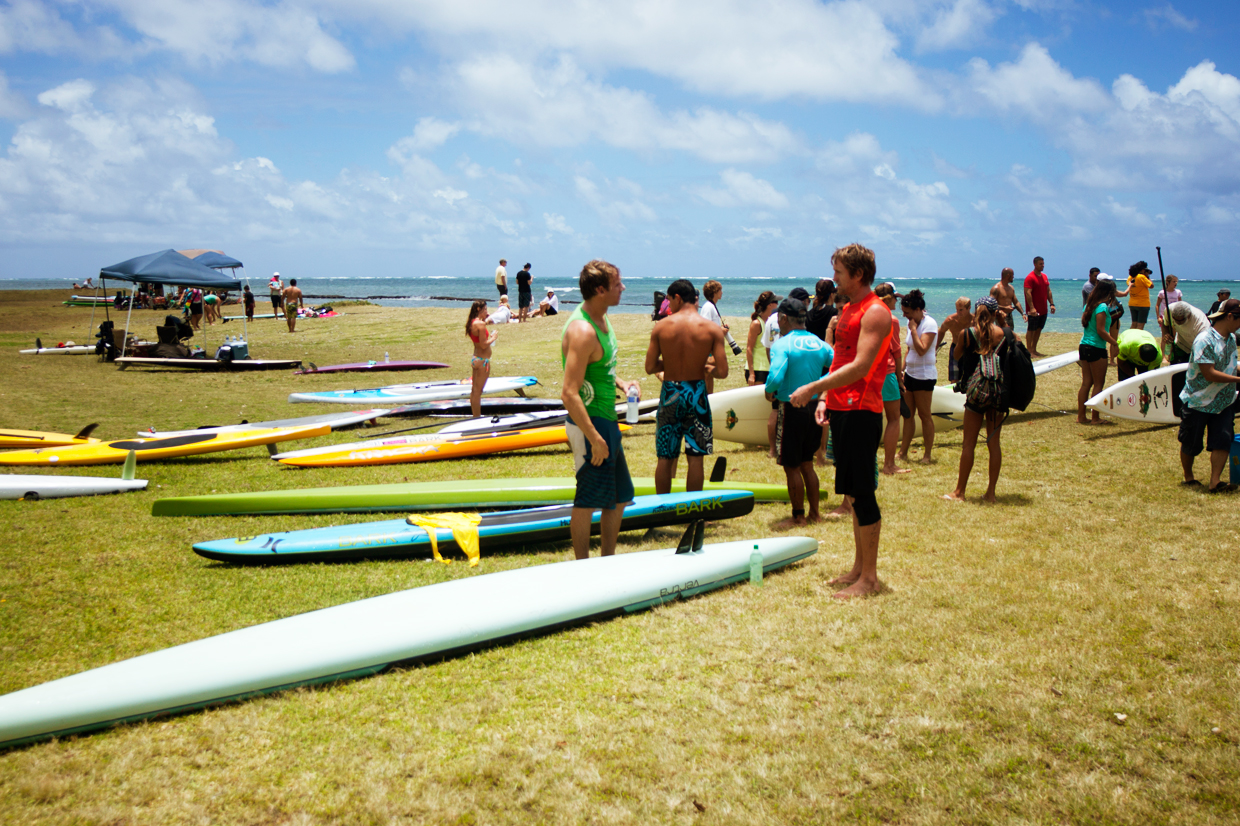PADDLE FOR PAE ʻĀINA 2015
Location: Kualoa Regional Park
Date: Saturday, July 11
Time: Noon–4:30 p.m. Food at 2 p.m. $15, family friendly.
Click here to register for the race and here for more info.
Austin Kino recently returned home from a 27-day voyage aboard the Hikianalia, a modern Polynesian voyaging canoe. At sea, he’s a sailor and safety officer for the Polynesian Voyaging Society, which is in the midst of its heralded Malama Honua worldwide voyage; he is part of a rotating Hawaiʻi-based crew which finds port around the Pacific, Indian, and Atlantic Oceans while orienting position using the stars, moon, sun, and sea. On land, Kino uses his smart phone to navigate through photography, fashion, a startup business, and lately, community organizing.
“There’s a gap between traditional communities and the modern ‘cool’ things that come out of those places,” Kino explains. So he and some friends came up with a concept combining what Hawaiʻi is best at: a paddle race and a cook-off rolled into a family beach party. The Paddle for Pae ʻĀina and ʻĀina to Fork Throw-Down at Kualoa Regional Park is set up in two parts: a 2- and 4-mile paddle race around Mokoliʻi Island (Chinaman’s Hat) aboard any sort of craft that can be paddled by a single person, and a cook-off. The race is simple enough, and even if a paddler is terrible, at least they’ll work up an appetite. The cooks are limited to Hawaiian-style cooking, meaning the primary preparation will be with an imu (underground oven).

The event is sponsored by OluKai footwear, with proceeds going to nonprofit cultural and environmental groups Hui Aloha ʻĀina Momona in Koʻolaupoko, Oʻahu and E Ala Voyaging Academy in Waianae, Oʻahu.
Much of what is discussed in the Malama Honua educational programs is the respect for indigenous cultures, and the health of sea and land. That ideology is part of the event. “If we organize the race well; with safety in place and everybody knowing what to do; it’ll be like a kit. Then we can give it to another community, so they can give it to the non-profits they want, use the chefs they like, use the traditions that they want.” It is also a party. Unlike paddling regattas, where crews return to their respective team tents after races, the organizers have set up an open seating arrangement, intended for interaction. “We’re not exactly sure what’s going to happen. This thing isn’t about the money. It’s going to be a great time- We expect most everybody will just do beach sign-up, paddle, and eat.”


